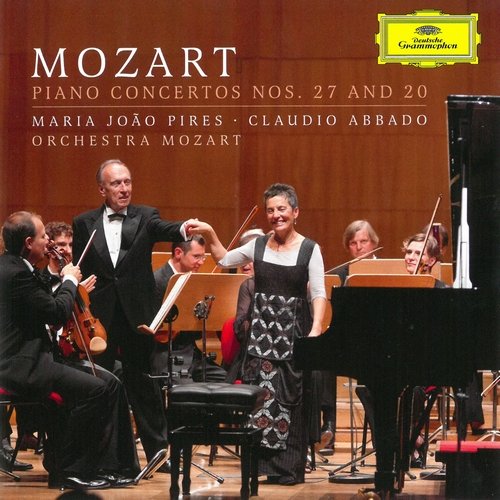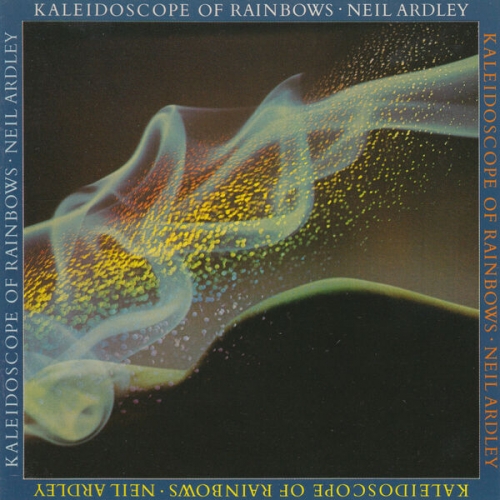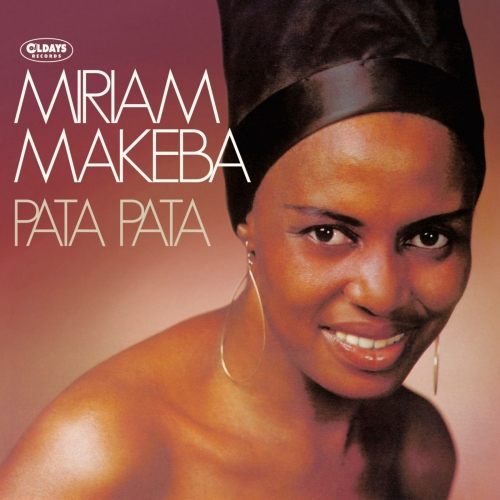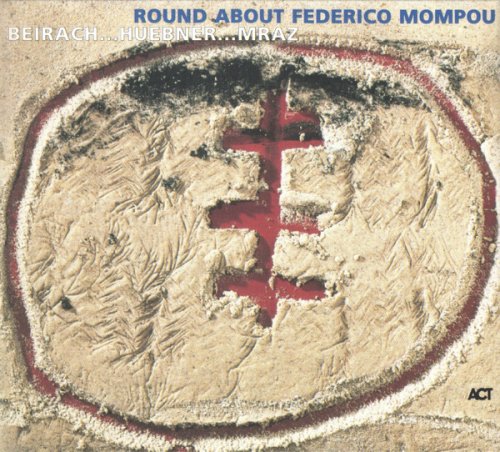Maria João Pires, Orchestra Mozart, Claudio Abbado - Mozart - Piano Concertos Nos. 27 & 20 (2012)

Artist: Maria João Pires, Orchestra Mozart, Claudio Abbado
Title: Mozart - Piano Concertos Nos. 27 & 20
Year Of Release: 2012
Label: Deutsche Grammophon
Genre: Classical
Quality: FLAC (image+.cue,log,scans)
Total Time: 01:00:14
Total Size: 276 Mb
WebSite: Album Preview
Tracklist: Title: Mozart - Piano Concertos Nos. 27 & 20
Year Of Release: 2012
Label: Deutsche Grammophon
Genre: Classical
Quality: FLAC (image+.cue,log,scans)
Total Time: 01:00:14
Total Size: 276 Mb
WebSite: Album Preview
Piano Concerto No.27 in B flat major, K 595
1. I. Allegro
2. II. Larghetto
3. III. Allegro
Piano Concerto No.20 in D minor, K 466
4. I. Allegro
5. II. Romanze
6. III. Rondo. Allegro assai
Performers:
Maria João Pires, piano
Orchestra Mozart
Claudio Abbado
It's a recording that just a few years ago would have been mainstream: a "name" pianist (albeit one much less well known in the U.S. than elsehwere), who has been playing Mozart's piano concertos since childhood, joins forces with a name conductor with whom she has frequently collaborated, leading a modern-instrument orchestra of some 70 players, with the results released on a major international-conglomerate label. Now it's distinctly unusual. But lo, there's value in the old ways. Portuguese-Brazilian pianist Maria-João Pires is a lifelong Mozart specialist, but she still has new things to say in two of Mozart's most popular piano concertos. You can chalk it up to her Buddhist outlook if you like: her readings of the Piano Concerto No. 27 in B flat major, K. 595, and Piano Concerto No. 20 in D minor, K. 466, might be described as detached without being lifeless. Her approach is most startling in the Piano Concerto No. 20, where her no-drama shaping of the material runs sharply counter to type. Sample the piano's entrance in the first movement, where it offers a twisting, tense elaboration of the main theme that is far removed from its source material. Generally pianists use this to raise the tension level, but Pires lets the unusually shaped, chromatic line speak for itself with fine effect. In the Piano Concerto No. 27, Mozart's last, Pires emphasizes the music's evanescent quality in a really lovely, gentle performance. As for Abbado, he apparently failed to get the memo about how proper balance in Mozart's concertos is impossible with a large modern orchestra, for the interplay between Pires and his Orchestra Mozart Bologna is subtle and detailed. The only problem comes with Deutsche Grammophon's engineers, who give Pires' left hand too much prominence, perhaps more so in one of the recording's two locales (we don't learn which concerto was recorded in Bologna and which in Bolzano) than in the other. In general, an absolutely distinctive release of the old school.





![Paul Desmond - Complete Quartet Recordings with Jim Hall [4CD] (2022) Paul Desmond - Complete Quartet Recordings with Jim Hall [4CD] (2022)](https://www.dibpic.com/uploads/posts/2026-02/1770567500_pltny8nj8icra_600.jpg)


